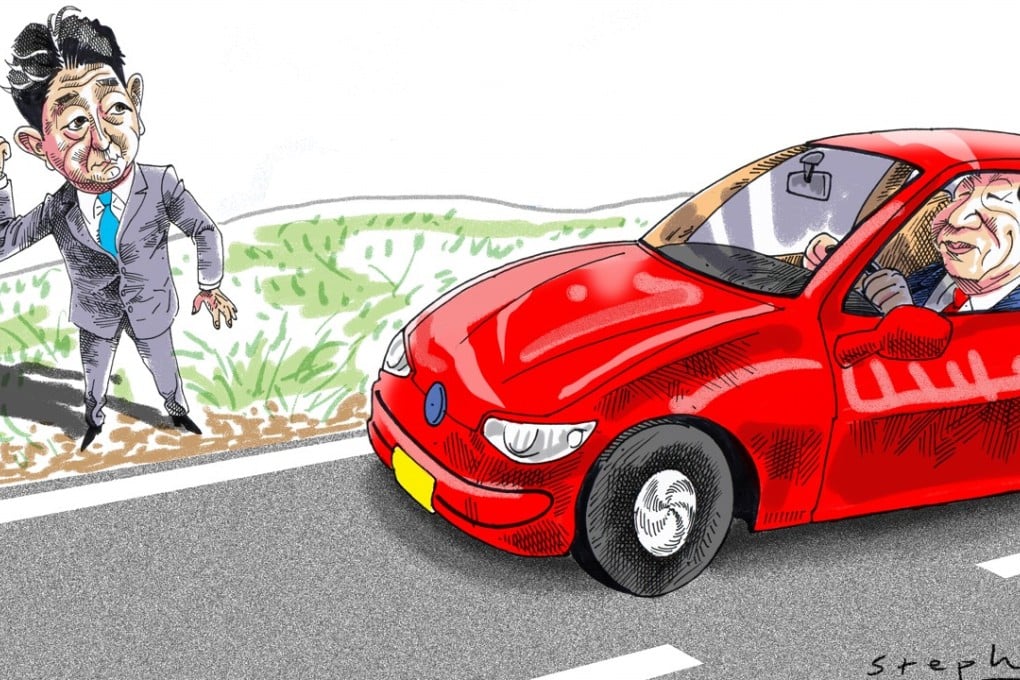Can Xi and Abe work together on the belt and road, to build better Sino-Japanese relations?
Bob Savic says having recently consolidated their power domestically, both leaders should have a freer hand to cooperate and advance common goals, among them a resolution of the North Korea nuclear stand-off

The contentious issues facing China and Japan are widely known, from territorial disputes to ongoing unreconciled grievances associated with Japan’s occupation of China during the second world war. During Xi’s and Abe’s first five years in office, these tensions boiled to the surface and the bilateral relationship was severely strained, sometimes resulting in the suspension of necessary diplomatic exchanges.
What Shinzo Abe’s election win will mean for China-Japan relations
Yet, in spite of these challenges, there is a growing convergence of interests in foreign policy. Both leaders are similarly highlighting the importance of expanding the role of the state in resolving intractable domestic socio-economic issues.
For instance, during China’s party congress, Xi called for an enlargement of state enterprises – arguably with a view to tackling the mounting underlying risks associated with the swelling numbers of displaced state-sector workers – while also enshrining his policy on a “decisive role” role for market forces into the party’s guiding principles.
Watch Xi Jinping’s marathon speech in 3 minutes
For Abe, more government spending on education and child care, while pressing large corporations to pay employees higher wages, were his rallying calls, during Japan’s election, in dealing with the problems of an ageing and shrinking workforce.
The next few years are likely to be a seminal period under their leadership, not only for China and Japan, but also for Asia and the world